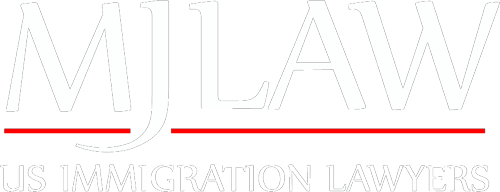H-1B PETITIONS, GLOSSARY OF TERMS
Cap subject – There is a general limit of 65,000 H-1B visas available each year. If your petition does not fall into one of the exceptions (making it cap exempt), then it is subject to this limit or “cap.”
Cap exempt – Certain H-1B petitions are not subject to the limit of 65,000, meaning the petition is “cap exempt.” Cap exempt petitions include petitions filed by: an institution of higher education, an entity affiliated with/related to an institution of higher education, a nonprofit research organization, a governmental research organization, as well as petitions for a beneficiary who is on J-1 and received a waiver of the two year home residency requirement, petitions for a beneficiary who was previously on H-1B within the last 6 years and has not left the US for more than 1 year, the beneficiary earned a master’s degree or higher from a US university, etc. Note that only 20,000 H-1B spots are reserved for the master’s degree/higher exemption; once the 20,000 master’s degree H-1Bs have been allocated other master’s level petitions then become subject to the 65,000 cap.
H-1B lottery – Because USCIS receives many more H-1B petitions each year than it is allowed to approve, petitions are selected by a lottery process. 2020 is the first year of a dramatic change to how the process works. Beginning March 1st, 2020, employers will be able to register intended H-1B petitions online by providing some limited information about the intended employment and employee. Once the online registration process is complete (likely by March 20th), USCIS will then conduct its lottery process to select petitions. If your petition is selected, you will then be invited to submit a full petition with all required documentation.
Specialty occupation – An H-1B petition requires that the job offer be for a “specialty occupation.” A specialty occupation has a very precise definition used by USCIS. In general, a specialty occupation is one that normally requires a bachelor’s degree (or foreign degree equivalent) in a specific field as a minimum requirement for the job. There are four alternative ways to show that a job qualifies as a specialty occupation: (1) a bachelor’s or higher degree or its equivalent is normally the minimum requirement for the position; (2) the degree requirement is common to the industry in parallel positions among similar organizations; (3) the employer normally requires a degree or its equivalent for the position; or (4) the nature of the specific duties are so specialized and complex that knowledge required to perform the duties is usually associated with the attainment of a baccalaureate or higher degree. Jobs that qualify as specialty occupations vary widely, and include: engineers, teachers, lawyers, physicians, certain nursing positions, architectects, accountants, IT professionals, scientists, psychologists, financial analysts, etc.
Non-immigrant – A non-immigrant refers to a foreign national who has been admitted to the United States for a temporary period of time. Non-immigrant statuses include: F-1 students, H-1B specialty workers, B-1/B-2 tourists, J-1 exchange visitors, E-2 treaty investors, etc.
Change of status – Change of status refers to the process by which USCIS changes an individual’s nonimmigrant status from one type to another. For example, someone in the United States in F-1 student status may request that USCIS change his/her status to H-1B. The change of status process is completed while the individual remains in the United States. To change from one status to another, the foreign national must be currently in a valid status (meaning you can’t apply to change status after your status has already expired).
Extension of stay – Extension of stay refers to USCIS extends or “renews” a person’s current status. In the case of H-1B applications, a person can normally extend status for an additional three years on top of the initial three years (normally six years max). However, if the foreign national has an approved I-140 petition or a PERM or I-140 petition that has been pending for more than 365 days, then he/she can continue to extend his/her H-1B status beyond the normal six year limit.
Consular notification – Consular notification refers to an H-1B approval that while acquired in the United States, requires the candidate to attend an interview at an overseas U.S. consulate and be issued a Visa before he or she will be permitted to be employed in the U.S. by the sponsoring employer.
Labor condition application (LCA) – An LCA is an application filed with the Department of Labor by the prospective employer. As part of the LCA, the employer must make four attestations: (1) that they will pay the H-1B employee at least the prevailing wage and actual wage, (2) that hiring the H-1B employee will not adversely affect the working conditions of other employees within the company, and that the H-1B employee will have similar working conditions as native US workers, (3) that there is no strike, lockout, or work stoppage when the LCA is filed, and (4) that the employer has or will provide notice of the application to both other workers at the company and to the H-1B beneficiary. The LCA is made on form ETA-9035. An approved LCA must be submitted with any H-1B application.
Portability – Portability refers to the provision of the American Competitiveness in the Twenty-First Century Act (AC21) allowing an H-1B holder to change from one employer to another. The H-1B employee may begin working for the new employer as soon as the new employer has filed the new I-129 (meaning the employer does not necessarily need to wait until the new petition has been approved before she/he can start working for the new employer).



